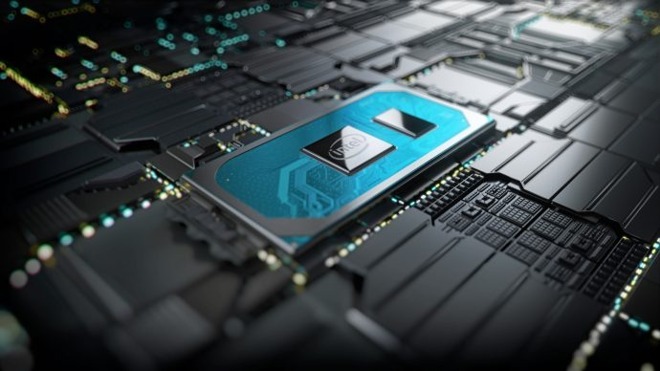The next generation of MacBook Pro could be equipped with processors capable of going faster than 5Ghz, after Intel revealed at CES 2020 it was planning to release a 10th-generation mobile processor capable of outpacing its existing 5GHz flagship component.
Revealed during a CES "sneak peek," Intel claimed the next batch of processors in its 10th-generation lineup will include a Core i7 H-series model with the high clock speed. While exact speeds were not mentioned, it was insisted the model will have a potential speed higher than 5GHz, making it effectively the fastest among its mobile processors.
At present, the highest clock speed in a mobile processor is the Core i9 9980HK, offering a boosted clock speed of 5GHz. As the chip is also in the Core i7 range, Engadget reports, Intel is also likely to surpass the performance offered by that processor in a future Core i9 announcement.
At the same time, Intel mentioned the H-series processors will provide better scaling across 8 cores and 16 threads. This in turn should also help improve performance on top of the clock speed increases.
Given the performance claims, the unnamed H-series chip may make an appearance in a the 2020 MacBook Pro. Current models already use H-series chips, with the highest clock speed available being the 2.4Ghz ninth-generation Core i9 in the 16-inch MacBook Pro, which can run at up to 5GHz under Turbo Boost.
Intel is anticipated to provide more details about its future processsor product lines during its news conference at 4pm eastern time on Monday.
Intel already has a number of other processors in its 10th-generation lineup for possible use in Apple notebooks beyond the MacBook Pro. Launched in August, four Y-series chips and four U-series processors offered potential use in the MacBook Air, due to offering extremely low thermal design points best suited for ultra-portable notebooks.
 Malcolm Owen
Malcolm Owen


 Oliver Haslam
Oliver Haslam
 Thomas Sibilly
Thomas Sibilly
 Marko Zivkovic
Marko Zivkovic

 Wesley Hilliard
Wesley Hilliard

 Andrew Orr
Andrew Orr



-m.jpg)






19 Comments
oh no! not this whole thing again!
FUD from Intel to try and slow down Apple's migration to i's own chips. Intel won't come out with these any time soon. Single CPU clock speed seems to still be important because too many applications are not programmed to make use of multi cores. If developers spent more time getting away from single thread programs, they could see their applications run faster by using more cores. Unless something has changed recently, Adobe products continue to make use of single cores to run the majority of their consumer software. Non-Adobe products are using multi cores making them run a lot faster, especially on "slower" CPUs.
These had better be 7nm or they will be furnaces!
There is a galaxy-wide gap between what Intel says and what Intel delivers